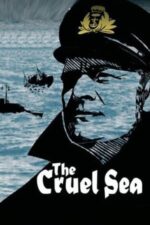Ah, the concept of a commander! Whether we're talking about military officers, captains on the high seas, or the titular protagonists in Shakespearean tragedies - command has been a recurring theme throughout the history of cinema. It's a fascinating subject because it encapsulates so much about human nature: loyalty, sacrifice, ambition, and the courage to lead others through uncertain times.
Let's start with Bitter Victory (1958). Set amidst the backdrop of World War II, this film is an intriguing exploration of trust and camaraderie under pressure. As two young British officers navigate their way through a treacherous mission, they grapple not just with external adversaries but also with the complexities of their own relationships - particularly when Leith's secret past with Brand's wife comes to light. The film poses some tough questions: How far should we trust those under our command? And what happens when personal histories threaten to undermine professional relationships?
Flying Tigers (1942) takes us back even further, to the days leading up to America's involvement in World War II. Here, Commander Jim Gordon leads a squadron of Flying Tigers - an elite group of American pilots fighting in China. As he strategizes and sends his crew into battle against insurmountable odds, he also has to manage the unique dynamics among his fellow flyers. This film serves as a captivating reminder of the human elements that often get overshadowed by history books - the friendships, rivalries, fears, and triumphs shared by those who serve on the frontlines.
In The Cruel Sea (1953), we meet Commander Ericson, tasked with leading a convoy escort crew during the harsh winter of World War II. His journey is marked by his relationship with his first officer - an intricate dance of camaraderie and tension as they face both the relentless sea and the harrowing responsibility of rescuing survivors from U-Boat attacks. The film offers a poignant reminder of the resilience required during times of war, not just on the battlefield but also at sea.
Cross of Iron (1977) takes us to the German army in 1943, where Captain Stransky's quest for the Iron Cross sets him against Corporal Steiner, a courageous soldier who values his men over personal glory. This film delves deep into themes of bravery, loyalty, and personal ambition during times of war and adversity. Through their diverging perspectives and motivations, it reminds us that even in conflict, there can be multiple truths.
Shifting gears to the world of Shakespearean tragedy, Titus Andronicus (1999) sees General Titus Andronicus return home from battle only to face a series of devastating losses. This dark tale masterfully combines elements of tragedy, history, and horror, offering audiences an intense exploration of revenge, sacrifice, and the destructive nature of conflict. As the characters become entangled in a web of deception and retribution, we're reminded that sometimes, no one truly wins in the game of power plays.
Finally, The Thin Red Line (1998) takes us to the brutal battlefields of Guadalcanal. "C-for-Charlie" documents the transformative journey of an Army Rifle company as they navigate from an unexpected landing to the grueling battles that ensue. Each member grapples with the harsh realities and sacrifices of war, discovering essential truths about themselves in the process. The film serves as a poignant reminder that while leaders may guide their troops, it's ultimately each individual soldier's choices that define the course of battle.
These films remind us that leadership isn't just about giving orders; it's about understanding people, motivating them, and sometimes making hard decisions for the greater good. They show us the sacrifices leaders make, the pressures they face, and the human stories behind the titles 'commander,' 'captain,' or 'general.' So next time you watch a war movie, take a moment to appreciate not only the action but also the commanding officers guiding their troops through storms both literal and metaphorical.


























